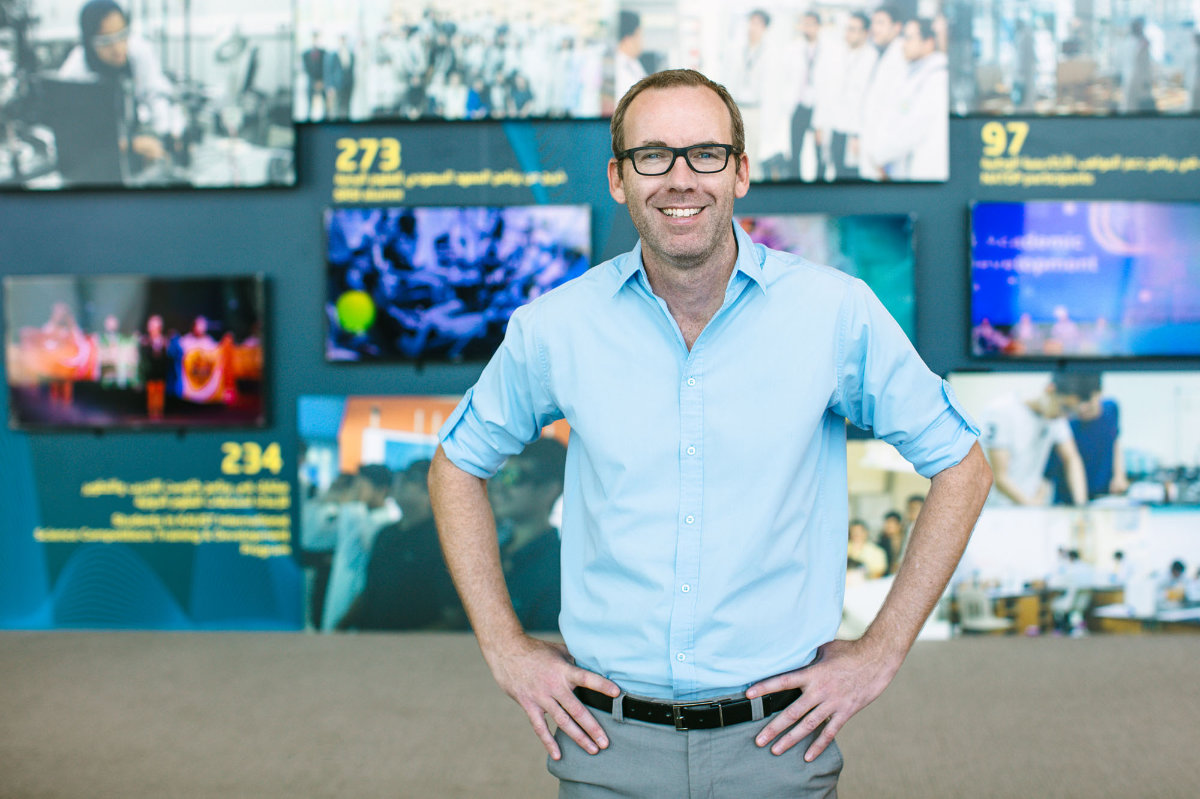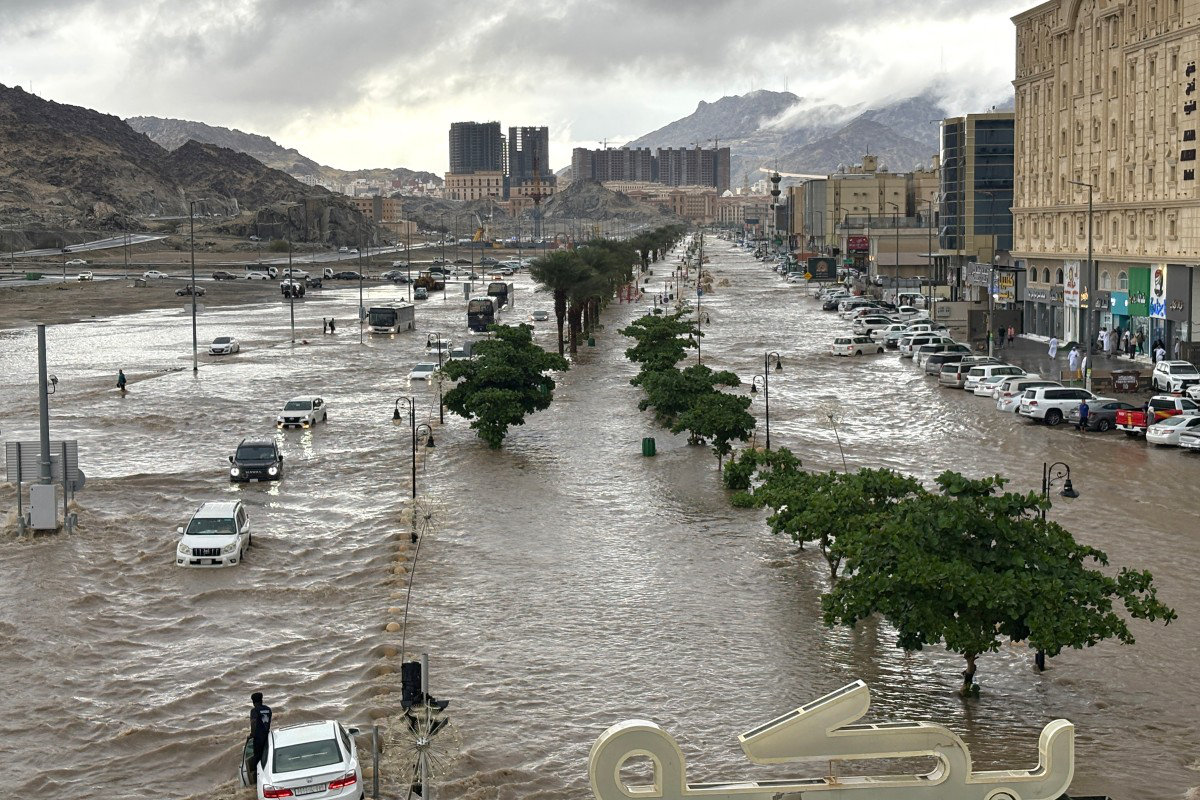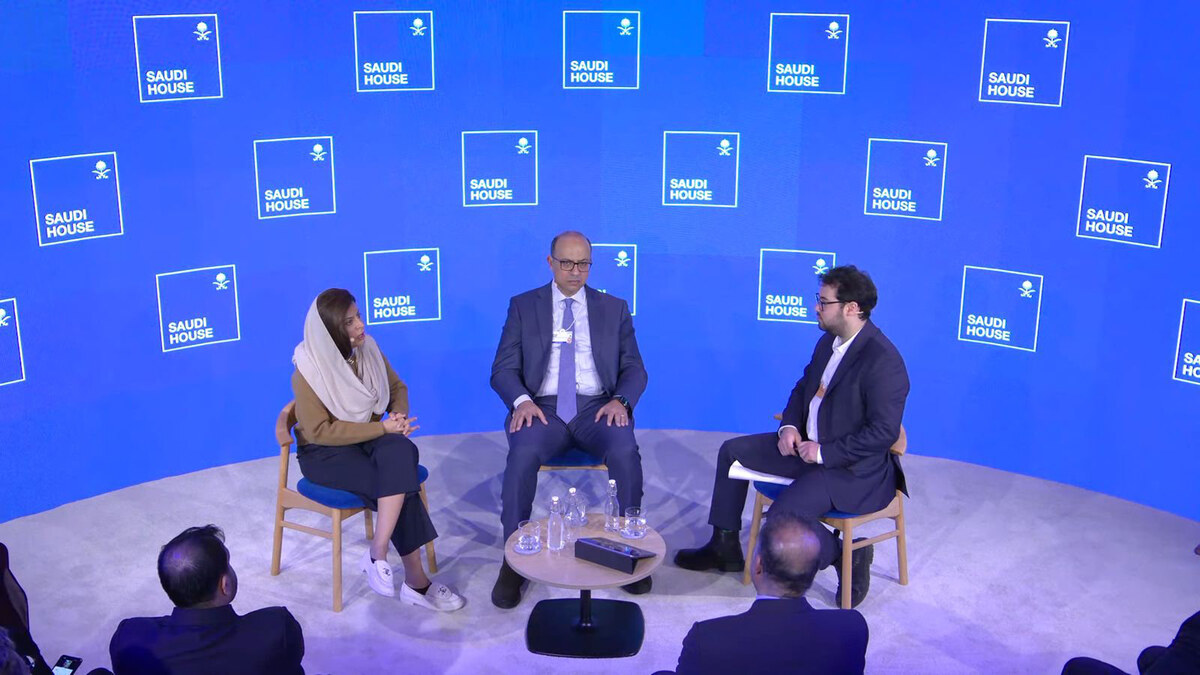DAMMAM: The Eastern Province municipality has carried out 975 field inspection tours in the region as part of coronavirus precautionary measures.
The inspections resulted in dozens of violations: 96 for noncompliance with precautionary and preventive measures, 42 for accumulation in commercial markets, and two for overcrowding at workers’ residences. The teams issued warnings and imposed fines on a number of establishments.
Tours were also carried out to disinfect and clean 972 sites in the districts and public streets of the area.
Authorities monitor health violations in Saudi Arabia’s Eastern Province
https://arab.news/59b92
Authorities monitor health violations in Saudi Arabia’s Eastern Province

- Tours were also carried out to disinfect and clean 972 sites in the districts and public streets of the area
How Saudi Arabia is tapping AI to monitor the environment and extreme weather

- AI enhances weather predictions, improving forecasts for heatwaves and flash floods critical for Saudi Arabia’s climate adaptation efforts
- KAUST’s Center of Excellence for Generative AI focuses on Earth observation technologies to address climate challenges like water scarcity
RIYADH: Since the launch of Vision 2030, technological innovation and sustainability have been central to Saudi Arabia’s transformative plan, with artificial intelligence emerging as a key tool to tackle a range of issues, including environmental challenges.
With nearly 90 percent of its territory covered by desert, the Kingdom is utilizing AI to combat land degradation, improve water resource management, and promote sustainable practices.
The King Abdullah University of Science and Technology has joined the global AI race by advancing generative AI research.

Its Center of Excellence for Generative AI adopts a multidisciplinary approach, focusing on technologies like multimodal foundation models and AI-assisted Earth observation systems to address challenges, including water scarcity and land degradation.
Prof. Matthew McCabe, director of KAUST’s Climate and Livability Initiative, told Arab News that AI has provided a pathway to revolutionize our understanding and interpretation of Earth systems, ushering in an era where data can be rapidly channeled to provide new knowledge and actionable insights.
“While GenAI has already impacted greatly on a number of domains, its application in the Earth and environmental sciences remains emerging,” McCabe said.

The center’s research focuses on developing AI tools for satellite imaging and Earth observation, enabling better monitoring of ecosystems. This includes using drones and satellite-based remote sensing technologies to track environmental changes in real-time.
Drones and satellite systems provide high-resolution data that is crucial for understanding ecological shifts in regions that were previously difficult to study. This allows for more effective land management, ecosystem restoration, and better predictions regarding weather patterns.
“We will be using remote sensing and other data sources to undertake ecosystem monitoring, helping to advance some of the goals and objectives of the Saudi Green Initiative,” McCabe said.
Opinion
This section contains relevant reference points, placed in (Opinion field)
AI-driven solutions are already aiding the Saudi Green Initiative’s goals of planting 10 billion trees and rehabilitating 40 million hectares of degraded land by 2030, analyzing regional climate data, soil conditions, and water availability to identify optimal planting locations.
The Saudi Data and AI Authority, known as SDAIA, has partnered with several government entities to leverage AI solutions in support of the Saudi Green Initiative. These efforts aim to create innovative, data-driven strategies for combating climate change.
AI is also transforming climate forecasting in Saudi Arabia. Hylke Beck, assistant professor of climate analytics at KAUST, highlighted AI’s potential to predict extreme weather events like heatwaves and flash floods, which are expected to become more frequent and severe due to climate change.

Beck said AI models can uncover hidden relationships within weather data that traditional forecasting methods cannot, enabling more accurate and actionable forecasts.
He noted that these improved forecasts are critical for the Kingdom as it works to adapt to climate challenges, such as the severe heatwave that affected Makkah last June or the devastating floods in April across the UAE and Oman.
“With projections indicating that climate change will intensify and increase the frequency of heatwaves and flash floods, alongside an expected 32 percent population growth by 2050, the need to harness AI technology has never been more urgent,” Beck told Arab News.

Although there are currently few weather forecasting systems specifically designed for the region, and even fewer that incorporate AI models, Beck says these technologies have transformative potential.
However, Beck says building effective AI models requires access to extensive datasets.
“Government support in making this data accessible is essential for creating a more climate-resilient future,” he said.
DID YOUKNOW?
• KAUST’s Center of Excellence for Generative AI focuses on Earth observation technologies to address climate challenges like water scarcity.
• Drones and satellites provide real-time data, aiding land management, ecosystem restoration, and environmental monitoring for the Saudi Green Initiative.
• AI models can uncover hidden relationships within weather data that traditional forecasting methods cannot, enabling more accurate and actionable forecasts.
Traditional weather models depend on equations created by scientists, but these equations can be limited by gaps in knowledge about certain weather patterns.
“These equations are imperfect because even the best meteorologists don’t fully understand all weather processes,” Berk said.
On the other hand, AI models analyze large amounts of data to find patterns, making predictions faster and more accurate. These are especially useful in areas where traditional systems struggle, like predicting thunderstorms, which are often harder to forecast accurately.

While traditional systems rely on expensive supercomputers, AI models can run effectively on regular computers, making them more affordable and accessible.
“These AI models can — and I believe will, in the not-too-distant future — fully replace current traditional models. However, they can also be integrated into them,” Beck said.
The Center of Excellence for Generative AI’s initiatives align with Vision 2030’s sustainability and innovation goals, collaborating with leading national entities like NEOM and Aramco, as well as international organizations like Meta and Nvidia to drive progress.
The center also addresses the shortage of generative AI talent in Saudi Arabia through training and upskilling programs for KAUST researchers, partners, and the wider community.

Saudi Arabia eyeing trade hub with trillion-riyal investments, transport official tells WEF

- Saudi Arabia’s logistics investments and business-friendly policies aim to position the Kingdom as a global trade gateway, panel hears
- Vision 2030 fosters clear goals, educated governance, and incentives, creating a robust foundation for logistics and transport growth
DUBAI: Savvy logistics investments and business-friendly policies are transforming Saudi Arabia into a global trade hub, a Davos panel was told on Thursday.
Nouf Al-Fares, assistant deputy minister at the Saudi Ministry of Transport and Logistics Services; and Ehab Aziz, chief financial officer of Agility, were speaking at Saudi House during the World Economic Forum’s annual meeting.
The panel highlighted the Kingdom’s ambitious logistics and investment targets, which are being met partly through international deals.
Al-Fares said: “A strategy was announced in mid 2021 by His Royal Highness Crown Prince Mohammed bin Salman. At the beginning I thought it to be intimidating having to raise SR1 trillion ($266 billion) in investments, but we are already halfway there through various established projects like the Riyadh Metro, and the new expansions of seaports and airports.
“We are now in motion to open a metro in Jeddah as well.”
The Kingdom’s shifting policies on foreign investment are also playing a role in surging growth, Al-Fares added.

Foreign investors are now able to claim 100-percent ownership of their Saudi-based businesses — a crucial policy in attracting investment.
“International companies are increasingly seeing the value of investing in Saudi Arabia,” the assistant deputy minister said.
“Chinese companies have already entered the Saudi market, with investments so far reaching over SR1 billion, and there are still more incoming projects.”
Saudi Arabia is preparing to open five new airports in the coming years that will further boost the Kingdom’s connectivity and infrastructure, she added.
“This aligns with our vision and position to being the gateway to Asia, Africa and Europe. We are also preparing projects to back the tourism sector as we are witnessing a surge in numbers of tourists, not including the religious ones.
“A lot of programs and funds that have been developed by our government are geared at attracting the youth, and those leaders with an appetite for change. We are excited for the upcoming completion of projects like the railway, which is to be completed within four years.
“The railway will connect the Kingdom to its GCC neighbors, namely Abu Dhabi, Kuwait and Doha.
Aziz praised the Saudi government’s proactive role in fostering a business-friendly environment.
He highlighted several schemes that have attracted domestic and foreign investment, particularly since the launch of Vision 2030.
The chief financial officer shared the details of his own company’s development in Saudi Arabia.
Agility, a logistics and supply chain leader, has been in operations for more than two decades, beginning as a Kuwaiti public company that constructed warehouses.
“Since its privatization Agility has become a global operator,” Aziz said.
“Today, the company has $11 billion worth of assets spread across various businesses. We also own one of the largest aviation companies that operates within 250 countries.”
A conviction that the Kingdom “would be the place to be in the future” led the company into a Saudi expansion, Aziz said, adding: “And so we have so far not been proved wrong.”
He said: “The story in Saudi is getting better and better over time. It is rare to find a country with a clear vision that is tangible with an educated government.
“The government incentivizing its employees through bonuses is also a new, atypical characteristic. All the infrastructure projects are very important but so is the mindset and attitude.
“And all that has been extremely positive. It has gotten to a level where you feel like you can completely count on the government; this increases your confidence in investing more in the country.”
Al-Fares and Aziz highlighted their optimism over the future of investment in the Kingdom’s transport and logistics sector.
The industry is poised for continued growth thanks to the government’s clear vision and investments that are providing a solid foundation for future development, they said.
“I think 2030 is carrying a lot and we are very optimistic,” Al-Fares added.

From farm to table — handmade cheese finds eager customers in Eastern Province

- Aziza Alghanim’s love of farming developed into a sustainable agriculture business
- She offers classes on the fundamentals of cheesemaking
QATIF: Aziza Alghanim is the woman behind Khairat Laziza, an initiative born from her passion for the land on her picturesque farm in the charming town of Saihat, which became a sustainable agriculture business.
Her journey began in 2001 when she began growing aromatic citrus fruits and vibrant buckthorn trees while also tending to a small herd of goats.
In 2014, she began making cheese by hand. Her initial offerings were met with overwhelming enthusiasm, selling out swiftly and fueling her motivation to pursue her passion.
Building on this success, she established a specialist factory in 2016, which allowed her to expand the range of crops and products available.
To meet the ever-growing demand, she founded a second specialist factory in 2019, taking the total number of products offered to more than 100.
Now, Khairat Laziza is a fully-fledged business dedicated to serving the community, creating a direct pathway from the fields to consumers’ tables.
Alghanim told Arab News: “My journey in cheese making began in 2014 when I established the Khairat Laziza Foundation, a non-profit organization where the entirety of its revenue is dedicated to supporting charitable causes.”
This commitment to giving back has become a fundamental aspect of her work.
Alghanim has participated in a number of festivals, collaborating with the Al-Ataa Charitable Society and other organizations.
What began as a modest selection of only 10 types of cheese has blossomed into a diverse portfolio.
Today, Khairat Laziza features an array of cheeses, labneh, milk, gelatos, flavorful jams, rich sauces, zesty pickles, biscuits and pizzas, pre-made cheese platters and dried produce, in addition to other dairy-free options, bringing the total number of products to 118.
All are 100 percent natural, free from preservatives and harmful chemicals, and mostly made from ingredients sourced from Alghanim’s farm, she said.
She takes immense pride in finding ways to transform the land’s resources into healthy, nutritious products for the community.
Among her standout creations are “zalloum” cheese, which blends the flavor of halloumi with the texture of mozzarella, healthy biscuits, and an eclectic selection of gelato flavors.
Looking to the future, Alghanim says she is entering a new phase in her journey — shifting her focus to teaching the fundamentals of cheese making.
She has been sharing her expertise through a series of workshops designed for enthusiasts and beginners alike. They teach valuable skills, providing participants with the chance to learn the intricacies of cheese production and providing a deeper appreciation of the art of cheese-making.
Saudi ministry signs two agreements to enhance social responsibility in nonprofit sector

Saudi Deputy Minister of Environment, Water and Agriculture, Mansour bin Hilal Al-Mushaiti, witnessed the signing of two memoranda of understanding between the ministry and the King Abdullah bin Abdulaziz Foundation for Developmental Housing and Kaaf Strategy, respectively.
The signing ceremony was attended by the ministry’s Undersecretary for Beneficiary Services and Branch Affairs, Ghanem Al-Jadaan.
The signing of the two MoUs aims to enhance the role of the nonprofit sector in fulfilling its social responsibilities and contributing to the development of its operations through community projects and initiatives.
It also seeks to improve the work environment within nonprofit associations and institutions supervised by the Ministry, the Saudi Press Agency reported on Thursday.
Diriyah Gate chief highlights city’s vision as a global blueprint for urban and social development

- Talal Kansara said Davos presence focused on showcasing Diriyah’s role in urban development intertwined with authenticity and tradition
DAVOS: Diriyah Gate Development Authority’s Chief Strategic Management Officer Talal Kansara has outlined the city’s ambition to become a model for urban and social transformation, offering a new way of living while preserving Saudi Arabia’s cultural heritage.
Speaking to Arab News on the sidelines of the World Economic Forum in Davos, Kansara emphasized Diriyah’s role in showcasing urban development intertwined with authenticity and tradition.
“I think we have a unique story when it comes to urban transformation, to share with the world and (also) to learn from the rest of the world,” he said. “The area 20 years from now would be one of the best gathering places in the world, something where people can come and be immersed in a different experience, an experience that touches their souls, touches their heart, by providing them something that is authentic.”
Located on the northwestern outskirts of Riyadh, Diriyah has undergone significant redevelopment, carefully restoring its mud-brick structures that reflect the Najdi architectural style. Recognized as a UNESCO World Heritage Site since 2010, Diriyah is seen as the birthplace of the Kingdom and a living example of the region’s architectural and cultural heritage.
Marking its WEF debut, Kansara said that Diriyah’s participation at Davos aims to showcase the project’s holistic approach, spanning tourism, hospitality, culture and real estate.
“People would see beyond Diriyah as one of the Kingdom’s giga project, they would see elements of Diriyah that that is part of its DNA,” Kansara said.
With a $50 billion development plan in motion, the project seeks to transform Diriyah into a global hub for history, culture and lifestyle while setting new standards for urban planning.
“We have a case that we want to present to the world when it comes to urban transformation,” Kansara said, “and we (want to) foster the dialog between us and people who have urban transformation and urban economy as one of their priorities.”
He added that Diriyah’s practices can serve as a guide for other cities to design spaces catering to human needs, including both locals and visitors.
“People need to walk, they need to interact, they need to socialize,” Kansara said, “also building an infrastructure and building cities where they are welcoming visitors. The infrastructure is not only meant for the (local) community, (but) also for the visitors, because you don’t want the visitors and the tourists to overrun the infrastructure.”
He said that the world is full of examples “where overtourism is somehow jeopardizing and decreasing the quality of the city, and you can see the community bothered from that in different places.”
Central to Saudi Arabia’s national tourism strategy, Diriyah is projected to attract 15 million visitors by 2030 and create more than 250,000 jobs. Kansara said that sustainability is integral to the development plan, ensuring the project meets the needs of a growing population and an influx of visitors.
“Sustainability is not an afterthought. Sustainability has been in the (project) DNA since the master plan,” he said.
Kansara also stressed the importance of preserving both the tangible and intangible elements of Saudi heritage, creating a living, organic space rather than a static museum.
“Diriyah is a place where people can live, walk, dine, play, have fun and learn. You would come in a place that’s not a theme park. This is more of an organic place. You’ll see people living as a visitor. You would interact with people who are living, you would interact with people who are studying, interact with people who are working. And that’s a great opportunity for the visitors to have a real touch, the real exposure to the history of the country of Saudi Arabia.”
Visitors to Diriyah’s pavilion at the Saudi House in Davos have been captivated by its unconventional real-estate approach.
“The thing that people admired and that captured their attention is that usually with a conventional real-estate project, you would see skyscrapers, you would see big buildings, you would see metal and glass. And when they came here, they say, ‘OK, we are not seeing this,’” Kansara said.
“We’re using mud bricks for the entire city, the way that we preserve our architectural language, the way we preserve different social and cultural practices and bring it back to life. So it’s not a museum where you see things, but that’s part of the past. No, this is really bringing things from the past and making something that people really engage with for now and in the future.”























